TRIMIPRAMINE - ORAL
PHONETIC PRONUNCIATION: (trye-MI-pra-meen)
COMMON BRAND NAME(S): Surmontil
GENERIC NAME(S): trimipramine maleate
Uses
USES: This medication is used to treat depression. It may help improve your mood and sense of well-being and allow you to enjoy everyday life more. Trimipramine is a tricyclic antidepressant. It works by restoring the balance of certain natural substances (neurotransmitters) in the brain.
How to use TRIMIPRAMINE - ORAL
HOW TO USE: Read the Medication Guide available from your pharmacist. Consult your doctor or pharmacist if you have any questions. Take this medication by mouth with or without food, usually one to three times daily or as directed by your doctor. If taking this medication once daily, take it at bedtime to decrease the risk of drowsiness. Dosage is based on your medical condition and response to therapy. Your doctor may start you at a low dose and gradually increase your dose. Follow your doctor's instructions carefully. This medication does not work right away. It may take 2 to 4 weeks before you experience the full benefits. Use this medication regularly in order to get the most benefit from it. To help you remember, use it at the same time(s) each day. It is important to continue taking this medication even if you feel well. Do not suddenly stop taking this medication without consulting your doctor. Some conditions may become worse when the drug is abruptly stopped. Nausea, headache and a feeling of being ill may also occur. Your dose may need to be gradually decreased. Inform your doctor if your condition does not improve or if it worsens.
Side Effects
Precautions
Interactions
Overdose
Images
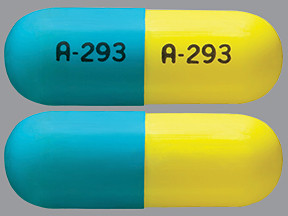
- color
- yellow
- shape
- oblong
- imprint
- A-293, A-293
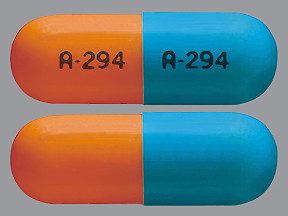
- color
- medium orange
- shape
- oblong
- imprint
- A-294, A-294
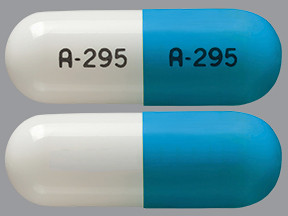
- color
- light blue
- shape
- oblong
- imprint
- A-295, A-295
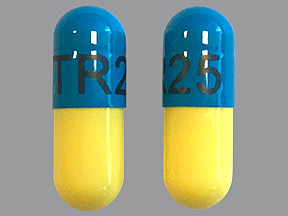
- color
- yellow
- shape
- oblong
- imprint
- TR25
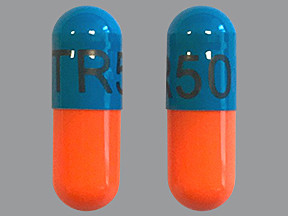
- color
- orange
- shape
- oblong
- imprint
- TR50
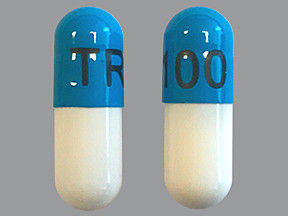
- color
- light blue
- shape
- oblong
- imprint
- TR100
Reviews
Faq for TRIMIPRAMINE - ORAL
Trimipramine is an oral medication that is primarily used to treat depression. It belongs to a class of drugs known as tricyclic antidepressants.
Trimipramine works by increasing the levels of certain chemicals in the brain, such as serotonin and norepinephrine, which can help improve mood and relieve depressive symptoms.
Common side effects of Trimipramine may include drowsiness, dry mouth, blurred vision, constipation, dizziness, and weight gain. It is important to consult with a healthcare professional if any side effects become severe or persistent.
The onset of action for Trimipramine can vary, but it typically takes a few weeks for the medication to reach its full effectiveness. It is important to continue taking the medication as prescribed, even if you do not see immediate results.
Trimipramine is generally not recommended for use in children and adolescents under 18 years of age, as its safety and effectiveness in this population have not been well established.
Trimipramine may interact with certain medications, such as MAO inhibitors, certain antifungal drugs, and certain heart rhythm medications, among others. It is important to inform your healthcare provider about all the medications, supplements, and substances you are taking to avoid potential interactions.
Trimipramine is typically taken orally, usually once or twice daily, with or without food. The dosage is determined by a healthcare professional based on individual factors, such as the severity of the condition and the patient's response to the medication.
Discontinuing Trimipramine abruptly may lead to withdrawal symptoms such as nausea, headache, irritability, and insomnia. It is important to follow a gradual tapering schedule under the guidance of a healthcare professional when discontinuing the medication.
Warning
WARNING: Antidepressant medications are used to treat a variety of conditions, including depression and other mental/mood disorders. These medications can help prevent suicidal thoughts/attempts and provide other important benefits. However, studies have shown that a small number of people (especially people younger than 25) who take antidepressants for any condition may experience worsening depression, other mental/mood symptoms, or suicidal thoughts/attempts. Therefore, it is very important to talk with the doctor about the risks and benefits of antidepressant medication (especially for people younger than 25), even if treatment is not for a mental/mood condition. Tell the doctor right away if you notice worsening depression/other psychiatric conditions, unusual behavior changes (including possible suicidal thoughts/attempts), or other mental/mood changes (including new/worsening anxiety, panic attacks, trouble sleeping, irritability, hostile/angry feelings, impulsive actions, severe restlessness, very rapid speech). Be especially watchful for these symptoms when a new antidepressant is started or when the dose is changed.
Disclaimer
IMPORTANT: HOW TO USE THIS INFORMATION: This is a summary and does NOT have all possible information about this product. This information does not assure that this product is safe, effective, or appropriate for you. This information is not individual medical advice and does not substitute for the advice of your health care professional. Always ask your health care professional for complete information about this product and your specific health needs.
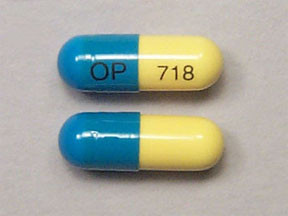
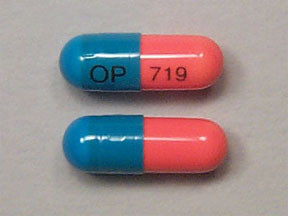
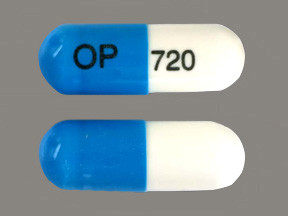
No Reviews Yet